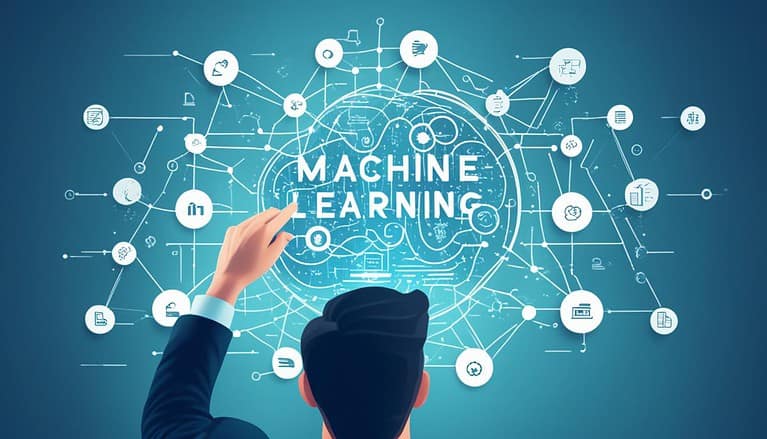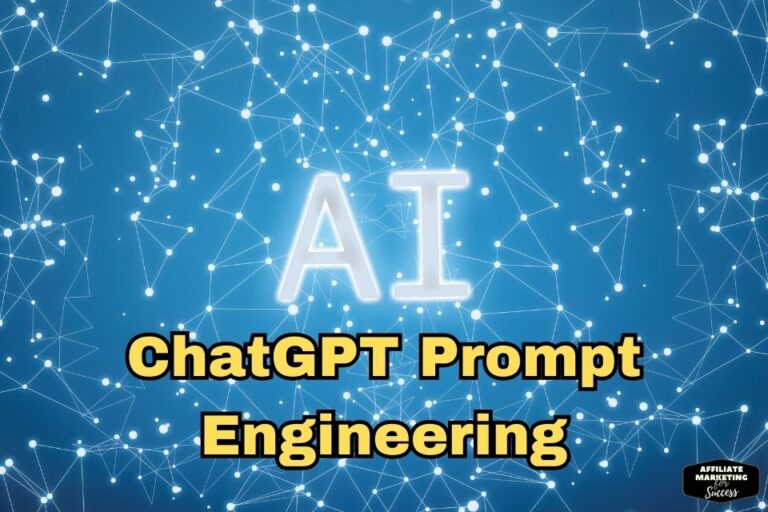AI SEO: 9 Proven Ways to Boost Rankings in 2024
In the rapidly evolving digital landscape, artificial intelligence (AI) is transforming the way businesses approach search engine optimization (SEO). This revolutionary technology is reshaping strategies, enhancing user experiences, and providing unprecedented insights into consumer behavior. Let’s explore how AI is revolutionizing the future of SEO and why it’s crucial for businesses to embrace this game-changing technology.
Key Takeaways:

- AI is revolutionizing SEO, offering new opportunities for businesses to optimize their online presence
- Advanced AI-powered search algorithms, like Google’s RankBrain, are improving search result accuracy by better understanding user intent
- AI tools are automating keyword research and content optimization, enabling businesses to create more relevant and engaging content
- Enhanced user experiences through AI analysis and personalized recommendations significantly improve customer satisfaction and engagement
- Predictive SEO, leveraging AI technology, helps businesses stay ahead by forecasting future trends and user behavior
AI-Powered Search Algorithms: Redefining Relevance
AI-powered search algorithms, such as Google’s RankBrain, are revolutionizing how search engines interpret user queries and deliver relevant results. By utilizing machine learning, these algorithms can:
- Analyze user queries to better understand search intent
- Provide more accurate and helpful search results
- Interpret complex or ambiguous search queries
- Understand the context and semantics of search queries
As Greg Corrado, Senior Research Scientist at Google, states: “RankBrain is one of the hundreds of signals that go into an algorithm that determines what results appear on a Google search page…”
The Impact of User Intent
Understanding user intent is crucial for optimizing search results. AI-powered algorithms recognize that different users may have varying intentions when conducting a search. By analyzing a user’s search history, browsing behavior, and other contextual data, these algorithms can better predict and meet the specific needs of individual users.To learn more about the importance of user intent in SEO, check out our guide on how to optimize your affiliate marketing website for SEO.
The Future of AI in Search
As AI technology advances, search engines will continue to refine their understanding of user intent and deliver even more tailored search results. This evolution provides businesses with new opportunities to optimize their websites and content to meet the specific needs of their target audience.To stay ahead in this AI-driven future, businesses must adapt their SEO strategies. Learn more about building an effective SEO strategy to ensure your business remains competitive.
Improved Keyword Research and Content Optimization

AI-powered tools are revolutionizing keyword research and content optimization. These advanced tools can:
- Analyze user behavior and identify search trends
- Provide valuable insights into keywords and topics that resonate with your target audience
- Suggest relevant and related terms to enhance content optimization
- Uncover valuable keyword opportunities
- Optimize content structure and improve overall relevance
By leveraging AI in your keyword research and content optimization efforts, you can create a more personalized and engaging experience for your users, leading to increased visibility and higher conversion rates.For more insights on content optimization, explore our guide on how to create SEO-friendly blog posts.
Enhanced User Experience Through AI Analysis
User experience is crucial in determining the success of your website. AI analysis allows businesses to provide personalized content recommendations that enhance user engagement and satisfaction. Some ways AI improves user experience include:
- Analyzing user behavior data to understand preferences and interests
- Delivering tailored content that meets unique user needs
- Implementing AI-powered chatbots for instant assistance
- Optimizing website design and navigation based on user interaction data
To learn more about improving user experience, check out our article on how to analyze your blog’s user behavior metrics.
Predictive SEO: Harnessing AI for Future Trends

Predictive SEO, powered by AI technology, is revolutionizing how businesses approach search engine optimization. By leveraging AI capabilities, businesses can:
- Gain insights into future trends and user behavior
- Adapt their SEO strategies proactively
- Forecast algorithm updates and user behavior changes
- Optimize websites and content for future trends
- Create tailor-made experiences that cater to specific audience preferences and needs
To stay ahead of the competition and optimize your content for future trends, explore our guide on how to create evergreen content.
Voice Search Optimization: The Rising Trend
With the increasing popularity of voice assistants like Amazon’s Alexa and Google Assistant, voice search optimization has become essential for SEO success. To optimize your website for voice search:
- Incorporate natural language processing (NLP) techniques into your content
- Focus on long-tail keywords that match conversational queries
- Ensure your website is mobile-friendly and loads quickly
- Optimize for featured snippets to increase chances of being selected for voice search results
Learn more about optimizing your content for voice search in our article on how voice search will impact your SEO strategy.
Visual Search Optimization: The Power of Images

Visual search optimization is becoming increasingly important in today’s digital landscape. To ensure your visual content ranks well in search results:
- Optimize images with relevant metadata (file names, alt tags, captions)
- Provide descriptive information about your images to help search engines understand context and relevance
- Optimize file size and format for improved page load times
- Use high-quality, relevant images that enhance user experience
For more tips on optimizing your visual content, check out our guide on how to create a style guide for your blog.
Conclusion: Embracing the AI-Powered Future of SEO
The integration of AI in SEO is revolutionizing digital marketing strategies. By embracing AI-powered tools and techniques, businesses can improve their online visibility, engage their target audience more effectively, and stay competitive in the ever-evolving digital landscape.To succeed in this AI-driven future, businesses must:
- Adapt their SEO strategies to incorporate AI-powered insights
- Focus on creating high-quality, relevant content that meets user needs
- Optimize for voice and visual search
- Leverage predictive SEO to stay ahead of future trends
- Continuously analyze and improve user experience based on AI-driven insights
By embracing these AI-powered SEO strategies, businesses can create a seamless and engaging experience for users, ensuring their continued success in the world of digital marketing.
Source Links

- https://medium.com/@seocustomizer/ai-and-seo-unleashing-the-future-of-digital-marketing-2b1e3d5cbe4c
- https://www.forbes.com/sites/forbesagencycouncil/2023/04/19/how-ai-will-revolutionize-the-future-of-seo/?sh=24a500a1138a
- https://powerdigitalmarketing.com/blog/future-of-seo/
I’m Alexios Papaioannou, an experienced affiliate marketer and content creator. With a decade of expertise, I excel in crafting engaging blog posts to boost your brand. My love for running fuels my creativity. Let’s create exceptional content together!







